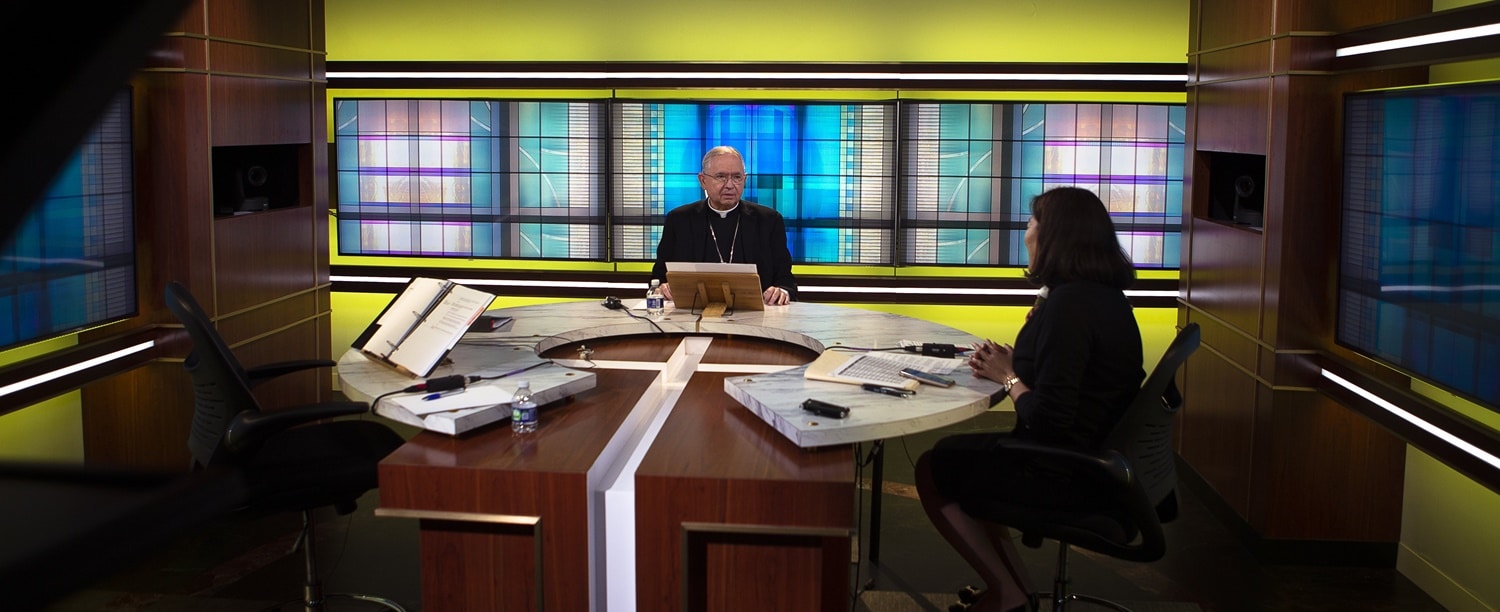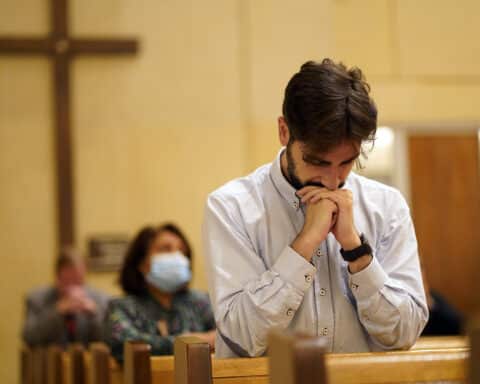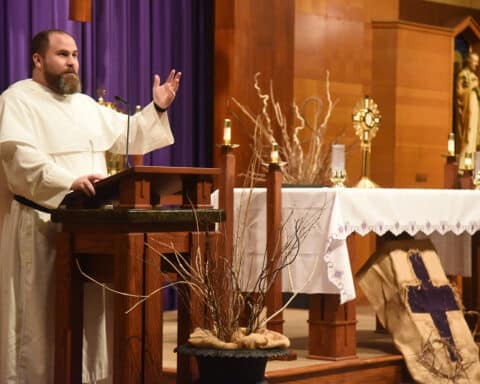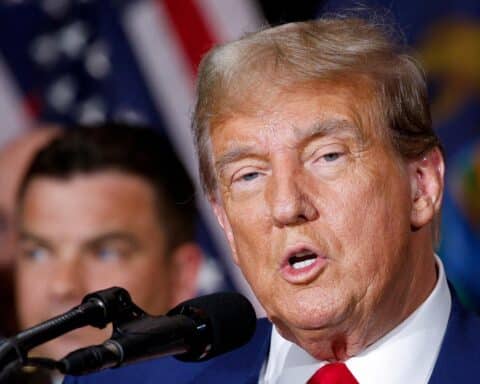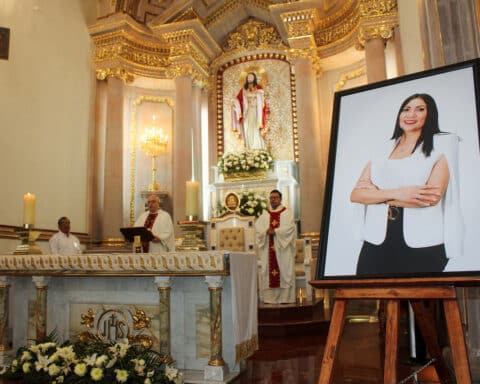The big challenge looming over the U.S. Conference of Catholic Bishops’ spring general assembly — staying united among themselves in the face of sharp disagreement on a neuralgic issue — was clear from the start.
Archbishop José Gomez of Los Angeles, president, acknowledged as much in his presidential address, declaring that “unity in the Church does not mean conformity of opinion or that bishops will never disagree.”
Then, to Catholics who might find episcopal disagreement unsettling, he pointed out that the apostles themselves sometimes disagreed “passionately … but never about the truth of the Gospel.”
Neither did the bishops disagree about that. But amid frequent appeals for unity, they did disagree, loud and long, about the pros and cons of a proposed statement on “the meaning of the Eucharist in the life of the Church,” including the question of worthiness to receive the sacrament.
In more than two hours of spirited debate, some bishops expressed fear that such a document might propel the hierarchy into a public confrontation with President Joe Biden, a Catholic who receives Communion while actively pushing pro-abortion policies.
Few if any bishops would relish such a confrontation, but those who support a statement think the hierarchy is duty-bound to make clear where the Church stands on the reception of the sacrament.
In the end, the bishops voted by a three-to-one margin — 168 yes, 55 no, 6 abstentions — to have their doctrine committee proceed with drafting a document to be considered at their general assembly in November.
In a concession to opponents, the process will include regional meetings of bishops to provide input to the drafters. The text will not single out a particular class of persons — politicians — for criticism, will not speak as if a single issue — abortion — were the sole criterion of worthiness to receive Communion, and will reaffirm that it is up to individual diocesan bishops to decide the worthiness question in particular cases.
Coming only hours after the Supreme Court unanimously upheld the Church in a conflict with the city of Philadelphia over the Church’s refusal to place foster children with same-sex couples, the bishops’ debate further reflected the Church’s continuing struggle to maintain its integrity in the face of a secular culture profoundly hostile to its beliefs and values.
As if to underline that, 60 Catholic members of the House of Representatives, all of them Democrats, issued a statement calling on the bishops not to make a statement on what they called “weaponization of the Eucharist to Democratic lawmakers” for supporting abortion.
The open clash among bishops at the USCCB spring meeting had been brewing for months.
Following Biden’s election last November, Archbishop Gomez appointed a working group to make recommendations regarding the problem presented by having a pro-choice Catholic in the White House. Among the recommendations was a statement on Eucharistic consistency — the idea that people receiving Communion should act in a way consistent with the Church’s faith.
But some bishops objected, and in early May Cardinal Luis Ladaria, prefect of the Vatican’s Congregation for the Doctrine of the Faith, sent Archbishop Gomez a letter giving a go-ahead for the statement but offering guidelines for proceeding. Chief among these was that the bishops maintain unity among themselves.
Soon after that, a letter was released bearing the signatures of 67 bishops opposed to a statement. (The number of signatories dropped as several signers said they no longer agreed with the letter or, in at least one case, had asked for but not been shown its text.)
And so the USCCB debate was no surprise. While 43 bishops spoke, the issues raised boiled down to two: unity within the hierarchy vs. the duty of bishops to teach what the Church believes about the Eucharist.
As to the first, Cardinal Wilton Gregory of Washington said this: “The choice before us at this moment is either we pursue a path of strengthening unity amongst ourselves or settle for creating a document that will not bring unity but may very well further damage it.”
As to the second, Archbishop Salvatore Cordileone of San Francisco said: “If we do not act courageously in presenting this teaching document clearly and convincingly on this core Catholic value, how can we expect to be taken seriously on any other topic?”
Ultimately, the pro-document side prevailed, and the USCCB doctrine committee, chaired by Bishop Kevin C. Rhoades of Fort Wayne-South Bend, Indiana, will proceed with the drafting. Supposing the statement is approved in November, some bishops presumably will publicize it and act on it in their dioceses, while others will pretend it doesn’t exist.
Against this background, the best news emerging from the bishops’ meeting may have been a progress report by Auxiliary Bishop Andrew Cozzens of St. Paul and Minneapolis on plans for a “National Eucharistic Revival” in dioceses and parishes countrywide from 2022-24. It will climax in 2024 in a National Eucharistic Congress — the first in the United States since one in Philadelphia in 1976.
Coming after years of dropping Mass attendance and poll data showing declining faith among Catholics in the Real Presence of Christ in the sacrament, the ambitious program seeks to spark a renewal of Catholic devotion to the Eucharist. Numerous Catholic groups and institutions, including Our Sunday Visitor, are partnering or collaborating in the project.
Russell Shaw is a contributing editor for Our Sunday Visitor.

